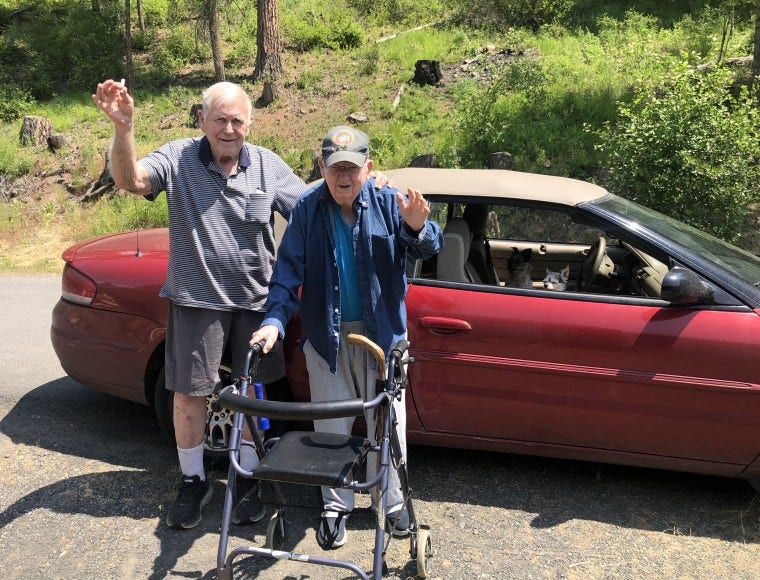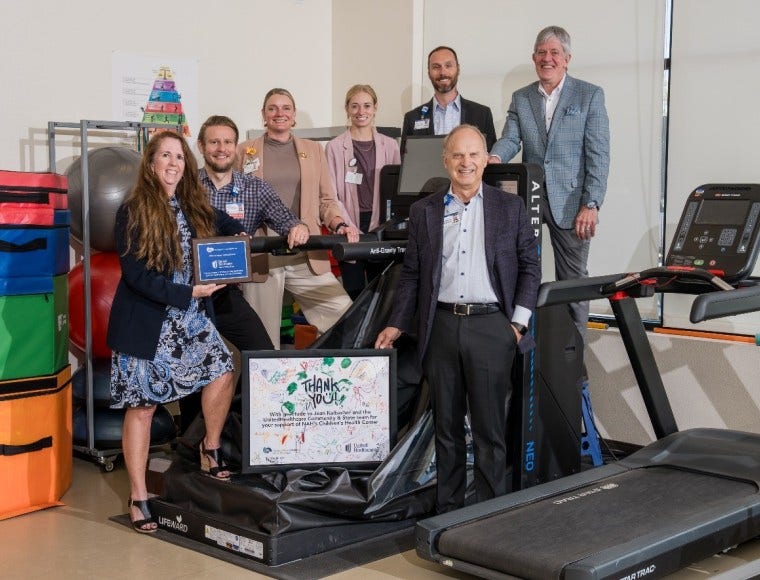New Mexico faces a significant digital divide, ranking 48th among states in internet connectivity and with New Mexico’s tribal communities facing even greater challenges in access.1,2 Internet connectivity is a critical resource to accessing health care and resources like education and employment. To bridge this gap, UnitedHealthcare Community Plan of New Mexico invested $275K in initiatives with Goodwill Industries of New Mexico and the University of New Mexico Foundation to boost internet access, device availability, and digital literacy training in communities across the state.
Hundreds attend mobile outreach and digital literacy courses
Funding from UnitedHealthcare supported expansion of the GoodSkills mobile outreach program, which aims to help participants connect to services to support their employment needs and quality of life. Goodwill Industries of New Mexico is reaching individuals who face barriers to digital access and literacy by hosting mobile outreach events offering one-on-one device coaching and support. In one year, Goodwill Industries of New Mexico:
- Hosted 10 mobile outreach events
- Distributed 80 devices to community members
- Helped 95% of individuals who received a device access the Goodwill digital literacy app on their phone
- Completed 168 digital literacy courses, serving 241 unique individuals in multiple courses
One community member who had experienced homelessness and domestic violence met a Goodwill career specialist while staying in a local shelter. She received a cellphone through this program and, within three months, was able to secure a job, navigate public transit for her commute, and move into an apartment of her own. This is just one example of the critical role of digital connectivity in helping people live healthier lives.
Devices and trainings make a local impact
The University of New Mexico Foundation, through its Health Extension Rural Offices (HERO) initiative, has also played a vital role in improving connectivity. With funding support from UnitedHealthcare, the program trained 30 community outreach workers to provide digital skills training and distribute devices, including laptops, phones and Wi-Fi hotspots, to residents in rural and tribal communities.
In one year, a combination of more than 380 phones, tablets, and internet hotspots have been distributed to residents. Local organizations such as senior centers, schools and community hubs across the state helped identify individuals in need, hosted outreach events, and provided one-on-one training. The UNM HERO program also focused on digital health literacy by helping residents navigate telehealth platforms, access health education and connect to workforce training opportunities.
In Wagon Mound, the local senior center identified a senior who has a Bluetooth-capable cardiology pacemaker that can send data to her cardiologist in Albuquerque via Bluetooth. However, she had no internet access at home to use this capability. Receiving a hotspot from this program had a direct positive impact on her health care, enabling her to transmit important health data without having to travel from the rural area to her cardiologist in Albuquerque.
These initiatives are helping hundreds of New Mexicans access the health care and resources that they need. To date, more than 460 hotspots and devices have been distributed, and distributions and trainings have reached more than 600 New Mexicans. Expanding digital access and literacy is just one way that UnitedHealthcare Community Plan of New Mexico is building community-led solutions that address local needs.
Enjoy this article? Get future Community & State insights delivered right to your inbox.











